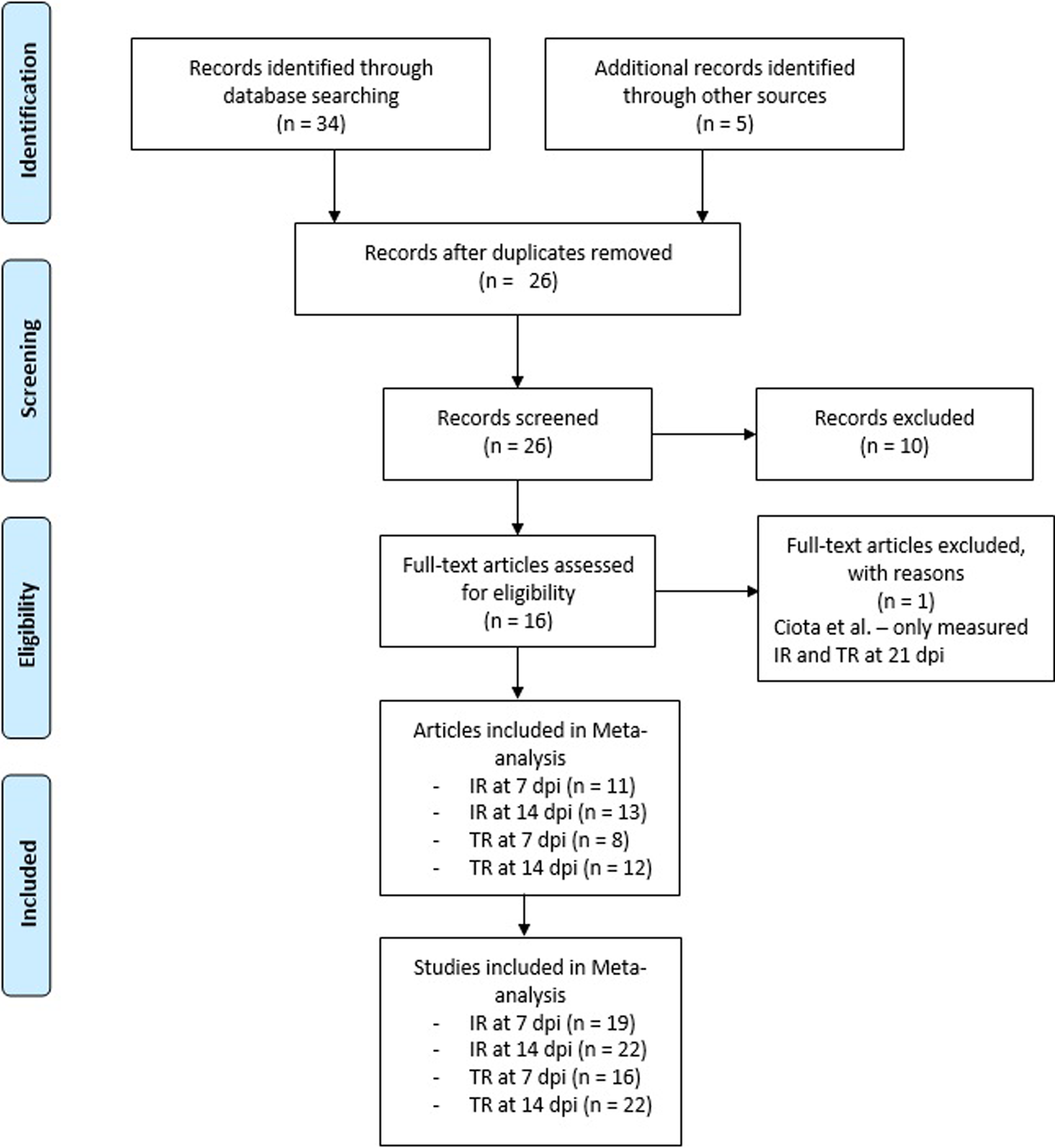Keyword: Geography

McKenzie, B. A., A. E. Wilson, and S. Zohdy. 2019. Aedes albopictus is a competent vector of Zika virus: a meta-analysis. PLoS ONE 14(5):e0216794.
Abstract
Background
Much work has been done in recent years to determine the vector competence of Aedes albopictus (Skuse) for Zika virus (ZIKV). If competent, Ae. albopictus could become an important vector in the spread of ZIKV to areas which until now have been considered safe from the virus. Despite much speculation about Ae. albopictus’ competence for ZIKV, there have been, to date, no quantitative syntheses of Ae. albopictus’ competence, nor have the potentially confounding differences between studies been addressed.
Methodology/ principle findings
This study represents a quantitative meta-analysis of the literature surrounding this topic by examining infection rates (IR) and transmission rates (TR) among sample populations of Ae. albopictus at 7 and 14 days post infection (dpi) across 15 journal articles comprising 23 studies. Our analyses examined potentially confounding variables in the studies contained therein, including: geographic origin of viral strain or mosquito population tested, whether sympatry of the tested viral strain and mosquito population was important, and freshness of blood meal. Our results suggest 1) Ae albopictus is a competent vector for ZIKV and 2) that origin of Ae. albopictus population and origin of viral strain had significant effects on the competence of Ae. albopictus to transmit ZIKV.
Conclusions/ significance
These results indicate a need to further explore the effects of methodology on vector competence studies and to examine in more detail the geographic variation in the competence of Ae. albopictus for ZIKV as well as the underlying causes of said variation. The ability of Ae. albopictus to carry and transmit ZIKV also points to a need to create new vector control strategies in case of a ZIKV outbreak in an area where Ae. albopictus is prominent. Finally, this study represents a potential template for future meta-analyses in the field of vector competence, where this type of study has been under-utilized despite the abundance of relevant studies.